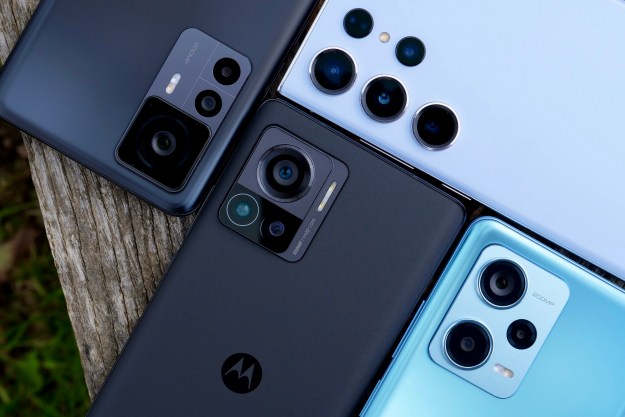 By now we’ve been thoroughly informed that AT&T will acquire T-Mobile for $39 billion and the impending effects of the deal are beginning to surface. Everyone has questions about what it means for business, for customers, for products – but what about what this merger means for Sprint? Earlier this month it was rumored that Sprint was interested in acquiring T-Mobile, and using their combined powers to better compete with powerhouse, iPhone-carrying networks Verizon and AT&T.
By now we’ve been thoroughly informed that AT&T will acquire T-Mobile for $39 billion and the impending effects of the deal are beginning to surface. Everyone has questions about what it means for business, for customers, for products – but what about what this merger means for Sprint? Earlier this month it was rumored that Sprint was interested in acquiring T-Mobile, and using their combined powers to better compete with powerhouse, iPhone-carrying networks Verizon and AT&T.
Sprint issued a statement this morning, chastising the deal as one that would “result in a wireless industry dominated overwhelmingly by two vertically-integrated companies that control almost 80 percent of the US wireless post-paid market.” And Sprint employees are more than just concerned at what the deal means for their company and the market: As of last week, they thought they would be the ones joining forces with T-Mobile. A TechCrunch source “with direct knowledge” of the now forsaken Sprint/T-Mobile merger says that Sprint believed the paperwork to be all but signed, and that it was “desperate” to finalize things. T-Mobile even admitted the acquisition was a surprise: In his letter to staffers, CEO Phillipp Humm noted that “I know this news is unexpected and may be somewhat unsettling.”
So if all signs pointed to a Sprint/T-Mobile deal, what happened? Money, probably. When the Sprint/T-Mobile rumors began, it was estimated that T-Mobile owner Deutshe Telekom wanted $25 billion for the company. It’s quite possible AT&T was able to best whatever offer Sprint made with its astounding $39 billion.
We’ll continue to see plenty of speculation as to what this deal means for various companies and consumers (three major networks to choose from? Does that make anyone else nervous?) over the coming days, but it’s also important to consider what it means for all the involved employees. Sprint shares dropped a dramatic 15.9 percent, and the company has already struggled to retain its customers from the likes of Verizon and AT&T. Is it possible Sprint isn’t long for this world, and will be bought out or acquired in a similar fashion? According to Computerworld and analyst Jack Gold, the new deal “puts Sprint in a difficult position as the third, and distant, carrier by subscribers…this will put more pressure on them to merge.” At least one business deal went its way: Sprint has begun a partnership with Feeney Wireless this morning, in a deal that will focus on “product innovation, speed-to-market, and rapid commercialization of new products.” Of course, it’s generous to say that this venture pales in comparison to what’s going on with its competitors, and that Sprint is probably finding itself in a state of temporary state of flux.
Editors' Recommendations
- 5G home internet: What is it, and should you get it?
- Verizon just took a huge leap ahead in the 5G race
- The best prepaid phone plans in 2023: the 6 best ones
- T-Mobile’s huge lead in 5G speeds isn’t going anywhere
- The 5G speed race is over and T-Mobile has won


